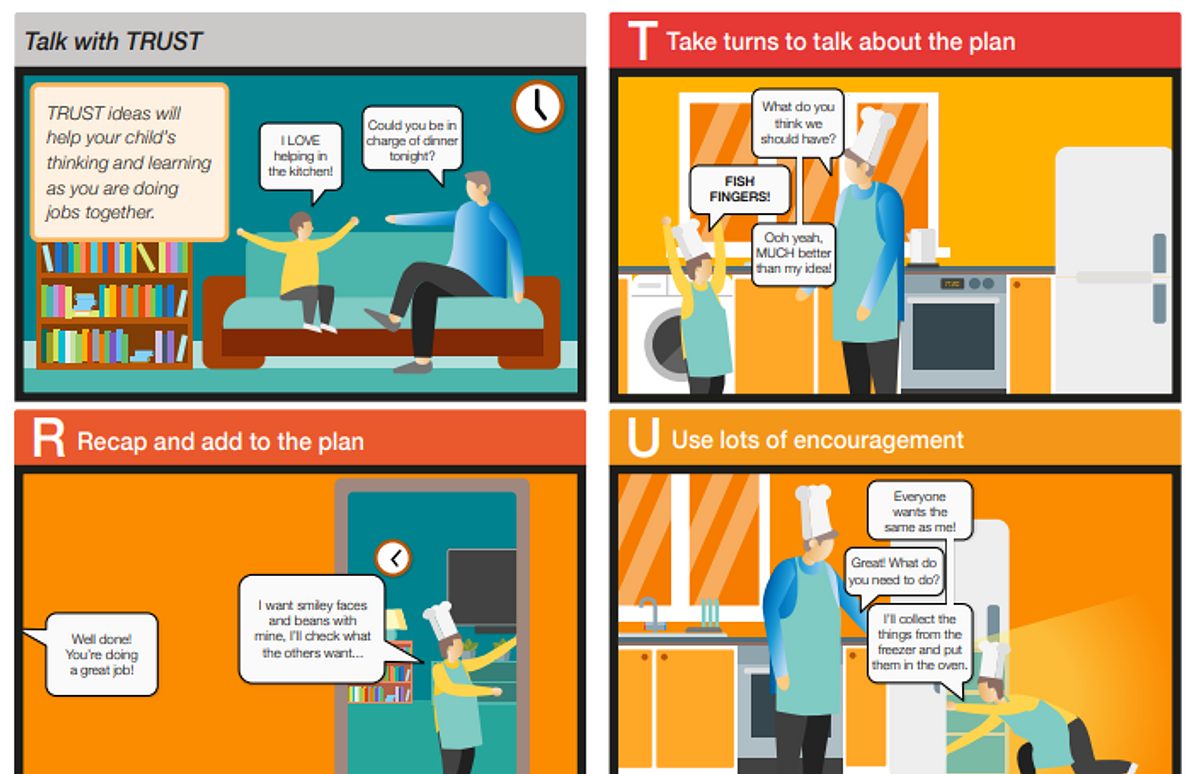The world is much quieter at the moment and this is most obvious in our schools. The deafening silence of classrooms, playgrounds, canteens and playing fields has become an eerie reality.
The need for children to interact has never been more important. Communication and language provide the foundations for learning and thinking and underpin the development of literacy skills
TRUST aims to support adult and child interactions happening in every home
Whilst online lessons can deliver lots of important content to our children, they can never replace the skilful ways in which teachers engage children in high-quality interactions. Teachers certainly make it look easy, but we know it’s harder than it looks!
To support our families to talk to children and young people is to provide them with hugely powerful tools for home learning.
The TRUST framework has been taken from the 10 techniques adults might use when engaging children in sustained shared thinking, outlined in the EEF’s Preparing for Literacy guidance report. The message within these prompts is that families can turn anything into a learning experience for their child.
TRUST aims to support adult and child interactions happening in every home to make them as beneficial as possible for our children and young people.
Share TRUST to encourage families to:
- Take turns to make plans and predictions before starting a task
- Recap to check ideas and understanding as your child is helping
- Use encouragement and praise to keep children engaged in learning
- Share prior knowledge & past experiences that link to what you are doing
- Tune-in and listen to your child – be curious about their interests

An example of the TRUST framework is available as a cartoon strip (pictured) to help families see the learning opportunities when cooking, gardening, or doing any jobs together. You can also give lots of ideas for shared reading from reading with TRUST.
In our suggestions for communicating effectively with parents we have included text and email ideas you could send to families to support all your hard work in encouraging high-quality interactions at home.
We know that some families will be finding this time of home schooling particularly difficult. Perhaps we can make it simpler and more accessible by emphasising the hugely important contribution that parents make when they listen and talk to their children…even when they’re sorting the laundry out!
The TRUST framework was adapted from ‘High Quality Interactions’ in the EEF’s guidance report Preparing for Literacy [p.9]
